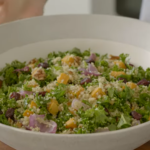Wisdom tooth extraction is a frequent dental surgery that many individuals endure. After the surgery, it’s crucial to follow a post-operative diet to promote healing and prevent complications. One question that often arises is whether it’s safe to eat cheese after wisdom teeth removal. In this article, we will explore the topic and provide you with a comprehensive guide on what you can eat after the procedure, with a specific focus on cheese.
Understanding Wisdom Teeth Removal:
Wisdom teeth, often called third molars, generally appear in the late teens or early twenties. However, they often don’t have enough space to grow properly, leading to numerous oral health issues. In such cases, a dentist or oral surgeon may recommend removing the wisdom teeth to prevent pain, infection, and other complications.
Post-Operative Diet Guidelines:
Following wisdom teeth removal, it’s crucial to follow a soft and nutritious diet to aid in the healing process. The first 24 to 48 hours are particularly important as the extraction sites are still healing. During this time, it’s best to stick to a liquid or pureed diet to avoid dislodging blood clots or causing damage to the surgical sites.
Can You Eat Cheese After Wisdom Teeth Removal?
The good news for cheese lovers is that, in most cases, it’s safe to eat cheese after wisdom teeth removal. Cheese is soft and easy to consume, making it an excellent choice for your post-operative diet. However, there are a few factors to consider before indulging in your favorite cheese dishes.
- Soft Cheese vs. Hard Cheese:
Soft cheeses like mozzarella, ricotta, and cottage cheese are the best options after wisdom teeth removal. They are easy to chew and won’t put unnecessary strain on the surgical sites. On the other hand, hard cheeses like cheddar or Parmesan may be more challenging to consume immediately after the procedure, as they require more chewing.
- Temperature and Consistency:
During the initial healing period, it’s essential to consume foods that are at room temperature or slightly chilled. Hot or cold foods can cause discomfort and irritation to the surgical sites. Therefore, it’s advisable to let the cheese sit at room temperature for a while before consuming it.
- Avoid Sticky or Crunchy Cheese:
While soft cheese is generally safe to eat, it’s important to avoid sticky or crunchy varieties. Cheeses with nuts, seeds, or dried fruits should be avoided as they can easily get lodged in the extraction sites, leading to complications.
Benefits of Eating Cheese After Wisdom Teeth Removal:
Apart from being a delicious treat, cheese offers several benefits that make it an excellent choice for your post-operative diet:
- High in Calcium: Cheese is an excellent source of calcium, which is essential for maintaining strong teeth and bones.
- Protein-Rich: Cheese is also rich in protein, which helps in tissue repair and recovery after surgery.
- Nutrient-Dense: Cheese contains various essential nutrients like vitamin A, vitamin B12, zinc, and phosphorus, which support overall health and healing.
- Natural Antibacterial Properties: Some types of cheese, such as aged cheddar, have natural antibacterial properties that can help prevent infections.
What are some other soft foods that are recommended after wisdom teeth removal?
After wisdom teeth removal, it is crucial to stick to a soft food diet to prevent any damage to the surgical site and promote healing. Here are some other soft foods that are generally recommended during the recovery period:
- Yogurt: Yogurt is an excellent choice as it is soft, creamy, and packed with probiotics. Opt for plain or flavored varieties without any large fruit chunks or granola.
- Smoothies: Smoothies are a versatile option that allows you to incorporate a variety of soft ingredients like fruits, vegetables, yogurt, and milk. To keep the blood clot from dislodging, avoid using straws.
- Mashed Potatoes: Mashed potatoes are easy to consume and can be seasoned to your preference. They provide carbohydrates for energy and can be made even more nutritious by adding cheese or sour cream.
- Applesauce: Unsweetened applesauce is a gentle and easy-to-eat option. It provides some fiber while being soft enough to avoid any discomfort.
- Soup: Opt for smooth and pureed soups like tomato soup, butternut squash soup, or cream-based soups. Ensure that they are lukewarm, not hot, to avoid any irritation.
- Scrambled Eggs: Soft and creamy scrambled eggs are a great source of protein. Cook until they are really mushy and easy to eat.
- Oatmeal: Cooked oatmeal is a warm and comforting option that can be enjoyed with a variety of toppings like mashed bananas or nut butter.
- Pudding and Jello: These desserts are soft and require minimal chewing. Choose sugar-free or low-sugar options for better oral health.
- Cottage Cheese: Cottage cheese is another soft and protein-rich food that can be consumed after wisdom teeth removal. Opt for small-curd varieties for easier consumption.
- Smooth Nut Butters: Peanut butter or almond butter can be added to soft bread or crackers for a nutritious snack. Ensure that there are no large nut chunks that could irritate the surgical site.
Remember to avoid foods that are hard, crunchy, sticky, or require excessive chewing during the recovery period. It is crucial to follow your dentist’s instructions regarding diet and gradually reintroduce solid foods as recommended.
Conclusion:
In conclusion, cheese can be safely consumed after wisdom teeth removal, provided you choose soft varieties and adhere to the guidelines outlined in this article. Remember to visit your oral surgeon or dentist for specialized recommendations depending on your unique situation. Following a proper post-operative diet is crucial for a smooth and speedy recovery. So, enjoy your cheese and take care of your oral health!
Disclaimer: This material is intended for informative purposes only and should not be used as a substitute for professional medical advice. Always consult with your dentist or oral surgeon before making any dietary decisions after wisdom teeth removal.







